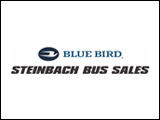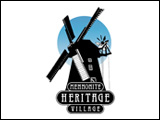The Soil Conservation Council of Canada (SCCC), the face and voice of soil conservation in Canada, will be evaluating a new computer-based tool designed to help agricultural producers identify opportunities to calculate and reduce greenhouse gas (GHG) emissions on their operations.
Holos, a greenhouse gas calculator designed by Agriculture and Agri-Food Canada (AAFC), analyzes a range of on-farm conservation management scenarios and determines potential reductions in GHG emissions. It is being evaluated by SCCC’s Taking Charge Teams across Canada, who will test the program by plugging in real data provided by farmers. They will then report their findings to AAFC, who will modify the program into a final version for field use.
Holos covers various conservation practices such as zero tillage, rotations with perennial forages, shelterbelts and riparian buffers, says SCCC executive director Glen Shaw. “At a time when the agricultural industry is under pressure to reduce its carbon-based emissions, this tool offers producers the opportunity to identify and set specific reduction goals,” he says.
The project is being funded by the Advancing Canadian Agriculture and Agri-Food Saskatchewan Program. “However, because we plan to conduct this testing program across Canada, it is open to funding partnerships with agencies throughout the country interested in evaluating the product in the field and extending it to producers,” says Shaw.
SCCC is a national, non-governmental, independent organization providing a non-partisan public forum to speak and act at the national level for soil conservation. It works with governments, private industry, individuals, non-government organizations and other groups to ensure that soil degradation, a problem costing Canadians $2 billion per year, is addressed.
The organization’s broad range of experience in climate change and greenhouse gas related issues includes its administrative and delivery role in managing the five-year Greenhouse Gas Mitigation Program, a producer-geared initiative designed to raise awareness of best management practices to reduce greenhouse gas emissions. Doug McKell, who recently retired as SCCC executive director, has agreed to serve as coordinator of the Holos project.
SCCC’s Taking Charge Teams are set up as a unique, national, farmer-directed group. They are seen as a model for designing and delivering programs aimed at raising awareness of agriculture and environment issues and the associated beneficial management practices. There is a Taking Charge Team in place in every province across the country.
The first phase of evaluating Holos has just been completed, with Taking Charge Team field agrologists and team leaders attending a one-day workshop in Ottawa. “AAFC demonstrated the latest version of Holos in the workshop and field people were allowed to do some hands-on training,” says Shaw. “Our hope is that the calculator will eventually be brought into a longer-term plan by AAFC to help producers address GHG and climate change issues.”



